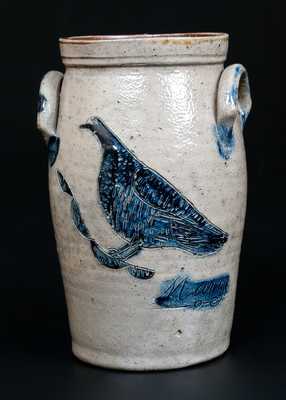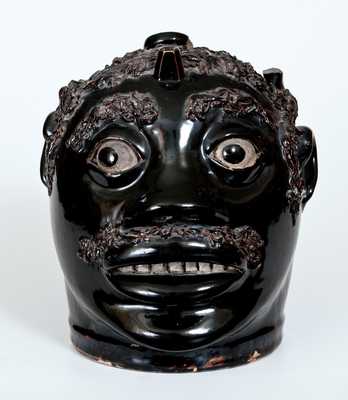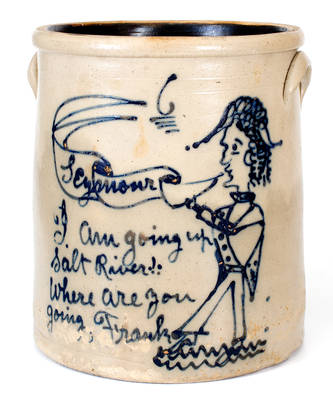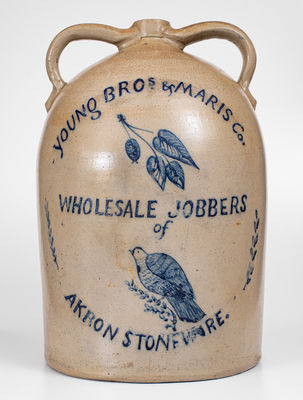Extremely Rare and Important Three-Gallon Cobalt-Decorated Stoneware Jug with Snake, Bird, and Bust Motifs, Inscribed "AF.RI.CA.," Muskingum County, OH origin, second or third quarter 19th century, highly-ovoid jug with tapered spout, decorated with two large incised and cobalt-spotted designs of snakes, one with coiled tail, two large fern-like motifs, and a brushed design of a crested bird with long bill and fanned tail, all above the inscription, "+AF.RI.CA." The reverse is decorated with a heavily-brushed image of a man's bust with incised teeth and flattened hat. Cobalt highlight to lower handle terminal. The imagery and inscription on this jug, together with its period of manufacture, suggest it draws inspiration from the African Colonization Movement, which sought to resettle North American blacks in West Africa. The snakes and crested bird with long bill, possibly a native African bird called a hoopoe, may be references to the exotic fauna associated with the continent. While the majority of the jug's decoration is applied with a brush, the borders of the snakes and the teeth of the figure on the reverse, presumably meant to represent an African man, are incised. Muskingum County, where this jug was made, was settled by both pro- and anti-slavery families from New England and the South, resulting in various conflicts in the region. Americans were, for many decades in the nineteenth century, embroiled in debate over Africa and what kind of a future African-Americans might find there, with whites on both sides of the slavery debate often sympathetic to the Colonization Movement's desire to effectively relocate American blacks. An imaginative and allegorical work, rife with visual appeal in the American folk aesthetic, this jug can be regarded as both a significant example of Midwestern art as well as social commentary immortalized in clay. Handle broken into three pieces and reglued. A flake to underside of handle. A 4 3/4" hairline ascending from shoulder partway up spout. Salt residue to bust decoration on reverse. H 16".

























